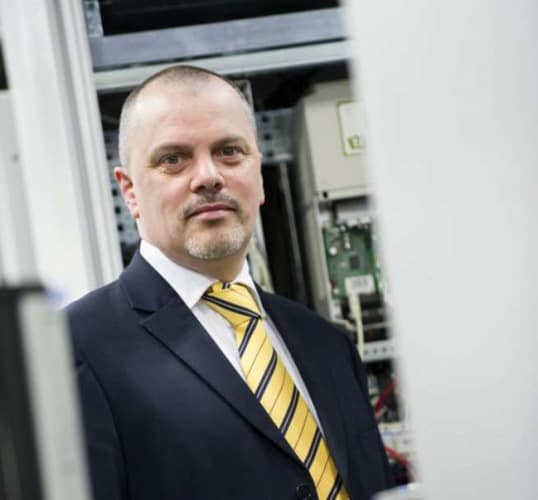Prof Tim Green, head of Energy Futures Laboratory, Imperial College
Energy advocate: The head of Imperial College’s influential Energy Futures Lab is optimistic about the UK’s prospects.

Professor Timothy Green
Education
Career
Green joined Imperial in 1994 and has held positions such as director of undergraduate studies and deputy head of the department of electrical engineering. He became director of the Energy Futures Lab in February 2014 and is leader of the Engineering and Physical Sciences Research Council hub in energy networks.
It takes only a brief look at Tim Green’s office to determine his interests in the engineering of energy. His shelves are dominated by a piece of vintage monitoring equipment — a wide, smiley face made up of two analogue dials and a semi-circular lever track — next to which are two highly polished, brass-and-steel model Stirling Engines. ‘Well, I am an engineer,’ he says with a shrug.
The Energy Futures Lab operates almost as a virtual department within Imperial College. ‘Energy doesn’t pay any attention to traditional boundaries,’ Green said. ‘People from different faculties have to come together and work with, and learn from, each other. You can’t pick up this stuff in a vacuum.’
Register now to continue reading
Thanks for visiting The Engineer. You’ve now reached your monthly limit of premium content. Register for free to unlock unlimited access to all of our premium content, as well as the latest technology news, industry opinion and special reports.
Benefits of registering
-
In-depth insights and coverage of key emerging trends
-
Unrestricted access to special reports throughout the year
-
Daily technology news delivered straight to your inbox










Water Sector Talent Exodus Could Cripple The Sector
Maybe if things are essential for the running of a country and we want to pay a fair price we should be running these utilities on a not for profit...